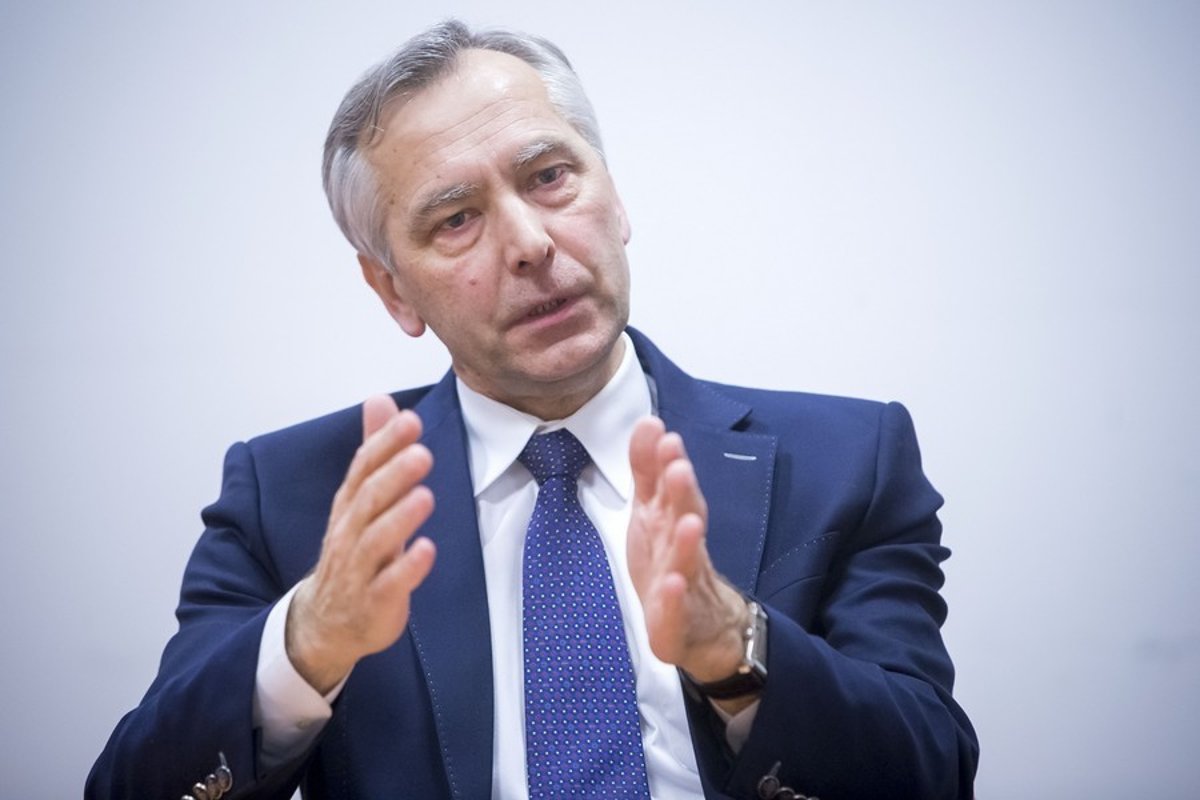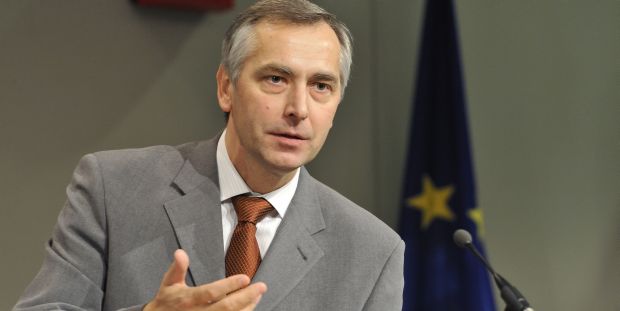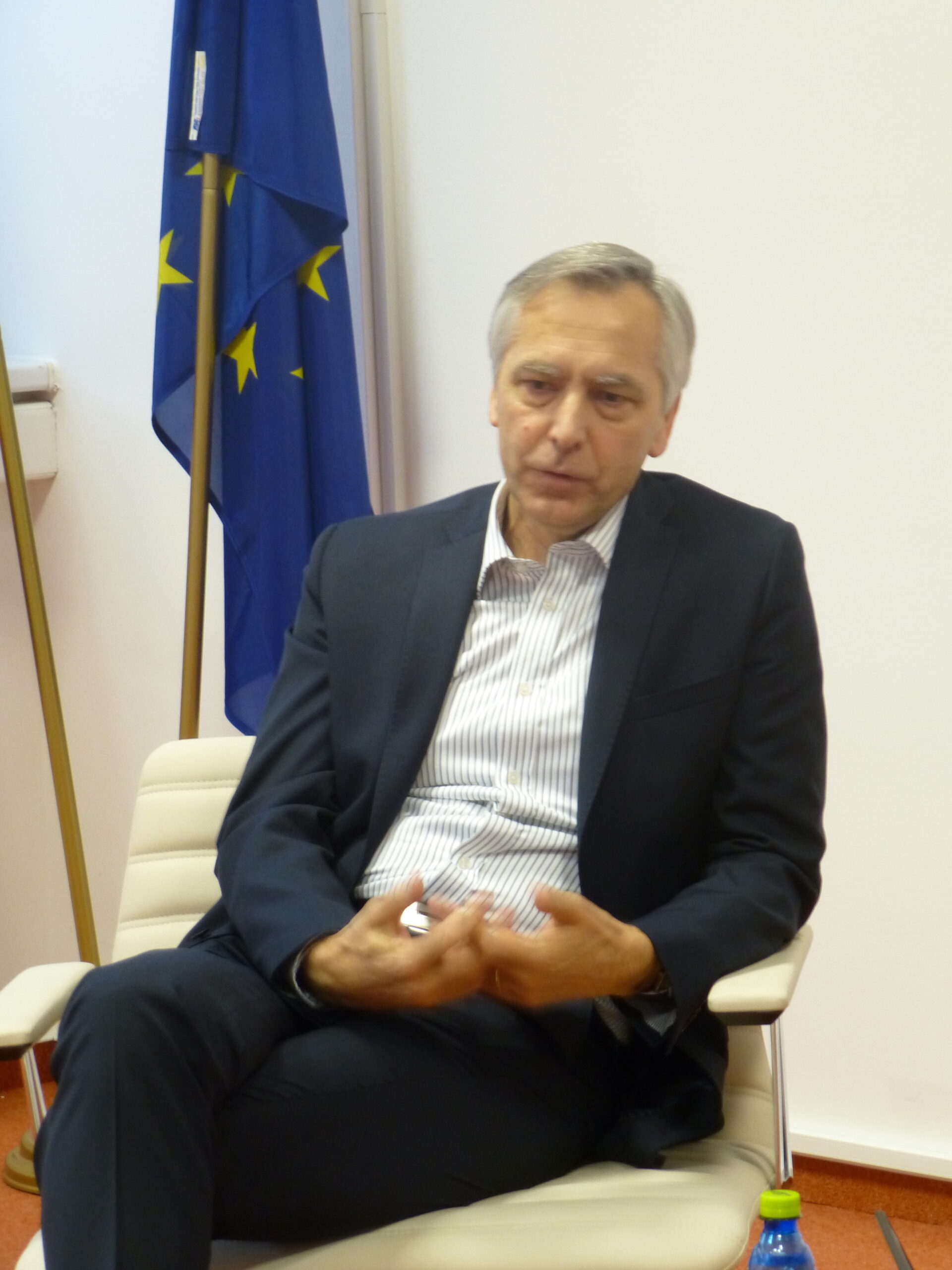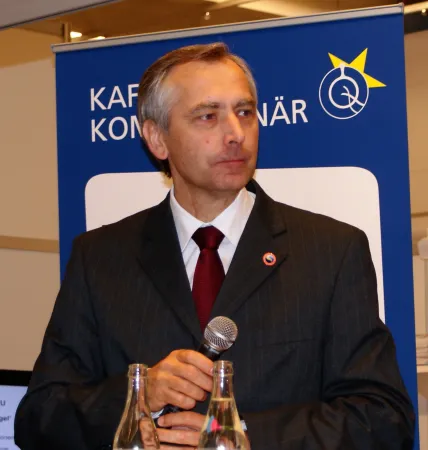Systematické vraždenie, mučenie, zotročovanie, únosy, znásilňovanie a prenasledovanie príslušníkov náboženských a etnických menšín na územiach ovládaných ISIS reprezentuje typ najväčšieho zločinu – genocídu.
Autor je osobitný vyslanec
pre podporu slobody náboženstva alebo viery mimo EÚ
Každoročný Medzinárodný deň náboženskej slobody (27. október) je pripomienkou, že sloboda náboženstva alebo viery (presvedčenia) nie je ani samozrejmou realitou, ani širokým víťazným medzinárodným trendom. Práve naopak, tendencia je negatívna. Táto základná, univerzálna hodnota je v súčasnosti vážne obmedzovaná alebo atakovaná vo väčšine štátov sveta, reprezentujúcich 74 percent celkovej populácie (Pew Study Center Report, 2013).
Tento deň tiež pripomína ťažkú, dlhú, často krvavú cestu od otroctva, hlbokého spoločenského rozdelenia, sektárskej nenávisti a násilného utláčania k slobodným, pluralitným a tolerantným spoločnostiam, ktoré rešpektujú vládu zákona, základné ľudské práva a univerzálne hodnoty.
Žiadna nie je ideálnym modelom, ale postupne sa učíme. Nie je to jednoduchý, priamočiary proces. Mnohé národy, spoločenstvá, lídri a vlády v Európe, Ázii, Afrike, v Amerike, Austrálii a Oceánii sa snažia zlepšiť kvalitu demokracie, prijať a chrániť tieto princípy a hodnoty. Početní diktátori, autokratické režimy a násilné skupiny sa usilujú o opak.
Vyše 84 percent svetovej populácie vyjadruje svoju príslušnosť k náboženstvu (tamtiež). Ale sloboda náboženstva alebo viery nie je iba o nich. Je pre všetkých, keďže pokrýva ateistov, agnostikov, každého. Právo na slobodu myslenia, svedomia, náboženstva alebo presvedčenia sa viaže na slobodu prejavu, zhromažďovania a na ďalšie dôležité občianske a politické práva. Je lakmusovým testom všetkých ľudských práv. Pretože kde niet náboženskej slobody, tam chýbajú aj ďalšie občianske slobody.
Kultúra ľudskej dôstojnosti sa nedá vytvárať bez náboženskej slobody. Zápas proti totalite v rámci Československa začal kulminovať po bratislavskom Veľkom piatku, kedy modlitbová, sviečková manifestácia za náboženské a občianske práva bola brutálne potlačená policajnými silami. Lenže následný trend vývoja smerom k Nežnej revolúcii v novembri 1989 bol nezastaviteľný.
Sloboda nie je bezúčelová a neprežije bez zdieľanej zodpovednosti. Preto požiadavka na viac náboženskej slobody sa podľa mňa implicitne viaže na aktívnu angažovanosť náboženských predstavených a komunít pre mier, spravodlivosť, ľudskú spolupatričnosť a solidaritu. V 21. storočí je to veľmi potrebné.
Od systematickej likvidácie 1,5 milióna Arménov v rámci Osmanskej ríše, čo predstavovalo prvú uznanú genocídu 20. storočia, prešlo ľudstvo podobnými horormi na náboženskej, etnickej, národnej alebo rasovej báze v mnohých častiach sveta – v nacistických a sovietskych koncentračných táboroch, gulagoch a masových hroboch, v Kambodži, Rwande, Bosne… Sľub „Nikdy viac!“ z Norimberského tribunálu v roku 1946 bol porušovaný opakovane, znova a znova. Príliš často sme opustili záväzok zabrániť genocíde alebo neľudskému zaobchádzaniu. Fakticky, opustili sme ľudí v núdzi, prenasledovaných pre náboženstvo, presvedčenie, rasu, etnický pôvod – ich ľudskú identitu.
Súčasné systematické vraždenie, mučenie, zotročovanie, únosy, znásilňovanie a prenasledovanie príslušníkov náboženských a etnických menšín na územiach ovládaných ISIS reprezentuje práve tento typ najväčšieho zločinu – genocídu.
Tento postoj bol silne vyjadrený parlamentnými orgánmi Rady Európy, Európskej únie, USA, Veľkej Británie a Austrálie a ďalších inštitúcií alebo organizácií. Preto je aktuálnou a alarmujúcou otázka: Bude storočie genocíd pokračovať, alebo sa skončí? Ktoré skupiny a územia budú nasledovať po kresťanoch, jezídoch, šiítskych moslimoch a iných komunitách v Iraku a Sýrii?
Odpoveď na danú otázku je kľúčovo dôležitá a odhodlanie rozhodujúce. Lepšie, ľudskejšie storočie je našou morálnou povinnosťou! Ak chceme žiť pokojnejšie a lepšie časy, musíme zabrániť opakujúcej sa tendencii návratu neľudskosti. Znamená to zastaviť prenasledovanie nevinných ľudí, pomôcť umlčaným a bezbranným obetiam, postaviť páchateľov zločinov pred spravodlivosť. Ľahostajnosť, nevedomosť a strach pomáhajú fanatikom a páchateľom zločinov; naše mlčanie zraňuje obete.
Okrem genocídneho prenasledovania existuje veľa ďalších foriem náboženského útlaku – zákony proti blasfémii (rúhaniu), proti konverzii, sektárske násilie alebo totalitné režimy, ktoré sa usilujú potláčať náboženské prejavy a slobodu svedomia a presvedčenia v záujme presadzovania vlastnej ideológie a uniformity. Marx a Lenin odsudzovali náboženstvo ako „ópium ľudstva“. A vytvorili svoje vlastné „náboženstvo“ – novú nátlakovú a bojovnú ideológiu. Nedávni veľkí diktátori – Hitler, Stalin, Mao Ce-tung, Pop Pot – systematicky likvidovali slobodu náboženstva a presvedčenia.
Bez pochopenia náboženstva, vrátane jeho zneužívania (ako to robia napríklad islamskí teroristi), nemôžeme ani dobre porozumieť, čo sa deje v súčasnom svete. A tak nemôžeme ani nájsť účinnú, ozdravnú liečbu. Podpora slobody náboženstva alebo viery a etiky zodpovednosti, vzdelávanie a výchova pre život v rozmanitosti je základná cesta pre zápas s náboženským a násilným extrémizmom a terorizmom. Kultúra ľudskej dôstojnosti pre každého a všade bude môcť rásť a prinášať dobré ovocie v našich časoch, ak budeme pretínať korene ľahostajnosti, nevedomosti a strachu. Lebo ľahostajnosť, nevedomosť a strach sú spojencami zla.
Tento článok nájdete aj na dennikn.sk, .tyzden.sk









